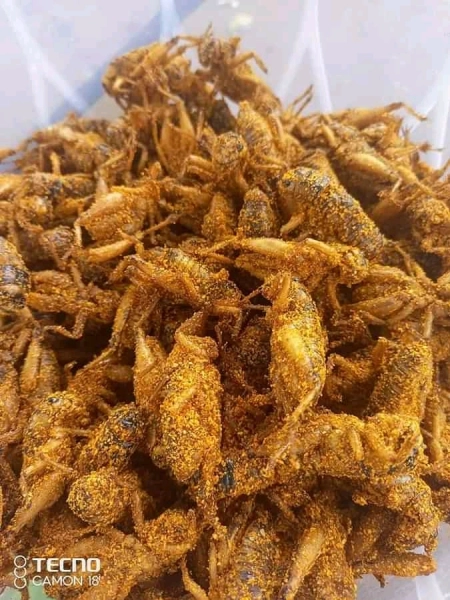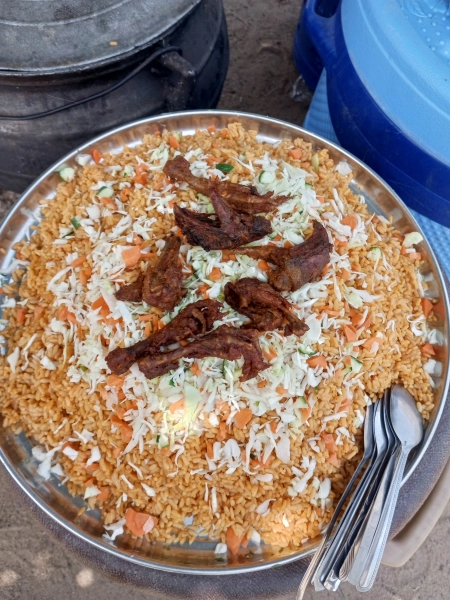NatureFoodLifestyleEducationAnnouncementReviewsAnimalsMoneyFamilyReligionWomenBeautyHome RemedyOpinionPoemsBusinessQuotesChildrenNigerianewsTravelGeneralLifetipsKitchenSportsQuestions AnsweredPersonal CareInformation TechnologyPrinciplesMotivationMenHealthRelationshipsOthersMarriageTechnologyAfricanews
profile/3413Snapchat-1102745012.jpg
Youngancient

YUMMY TIV SNACKS
~1.5 mins read
Tiv is one of the major tribes in Benue State, Nigeria. The Tiv people make up 2.5% of Nigeria's total population. Arguably, the Tiv tribe is the 4th largest tribe in Nigeria.
The prominent features of Tiv culture which make them unique are their food and dressing. The Tiv cuisine and attire can astonish you with it's ability to combine simple ingredients or patterns with delicious taste and gorgeous look. I would like to categorically state here that I'm a native of the Tiv tribe🙋🏽♀️💯.
The Tiv people are commonly known for their great appetite for food but It's not just great appetite, we have good and delicious meals/snacks. The yummy snack I will be discussing today is called "Hungwaja" which means peppered cricket/grasshopper. 'Ahungwaja' in plural form.
As we all know, cricket or grasshopper as others call it is among the family of insects. The eating of insects is an old practice that is very common in certain parts of the world such as Africa and Asia. In Benue especially among the Tiv people, Hungwaja is enjoyed by many. Some enjoy it with Ruam (otherwise called swallow or fofo) while others enjoy Hungwaja with alcoholic drinks.
Research has it that crickets are a good source of protein, vitamins, minerals, and fiber for the body. Hungwaja is enjoyable. It has a sweet, spicy, and crunchy taste😋. The display picture says it all🤗.
I find Hungwaja palatable and I prefer eating it alone in order to enjoy the spicy taste of it. My family members are huuuge fans of Hungwaja 😁. My dad won't mind emptying the tray of a cricket seller for everyone to eat at home😉.
For those who love eating Ahungwaja ( please continue), it's tasty and research says it's good for the body too and for those who haven't eaten🤷, taste it and come and share your wonderful testimony 😄.
To my viewers, what do you think about this special Tiv snack?💁
Photo credit: To people (Facebook page)
Source: https://www.legit.ng/1199777-traditional-food-dressing-tiv-people.html
profile/3413Snapchat-1102745012.jpg
Youngancient

Join the circle
Seasonal Greetings
~0.4 mins read
Compliments of the season everyone!!!!
As we all know, We are approaching a festive period of Christmas. This is the season where we give and receive love, gifts, food and many more with each other.
Despite the fact that things are really hard for everyone in our country, Nigeria...last last everybody go chop breakfast for this season.
Note: The breakfast, I mean food and not heart break😁😁😁
Here is a tray of rice, you can join the circle, let's do it the Africa way.
Advertisement

Link socials
Matches
Loading...
